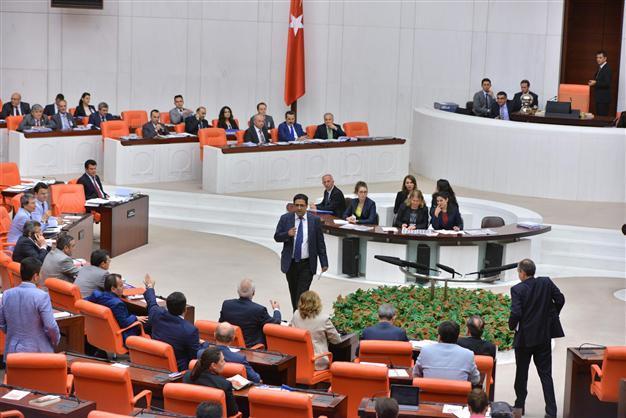Turkey gears up for ratification of key treaty on protection of personal data
ANKARA

DHA Photo
Turkey has accelerated the ratification procedure for a key international treaty which has been on the shelf since it was signed more than three decades ago.The ruling Justice and Development Party (AKP) sent the Council of Europe’s Convention for the Protection of Individuals with regard to Automatic Processing of Personal Data, which was signed by Turkey in 1981, to Parliament last week. Although it is not expected to be ratified before recess, the convention’s adoption will be high on the agenda when Parliament opens for a new term in the fall.
The government has already been working on a bill concerning the protection of personal data and a separate bill for the establishment of an Anti-discrimination and Equality Board. The bills are expected to be finalized by the time the treaty is ratified.
According to the Council of Europe’s treaty, personal data undergoing automatic processing shall be “obtained and processed fairly and lawfully; stored for specified and legitimate purposes and not used in a way incompatible with those purposes; adequate, relevant and not excessive in relation to the purposes for which they are stored; accurate and, where necessary, kept up to date; and preserved in a form which permits identification of the data subjects for no longer than is required for the purpose for which those data are stored.”
“Personal data revealing racial origin, political opinions or religious or other beliefs, as well as personal data concerning health or sexual life, may not be processed automatically unless domestic law provides appropriate safeguards. The same shall apply to personal data relating to criminal convictions,” the treaty also said.
Back in December 2013, a top state body working under outgoing President Abdullah Gül acknowledged that Turkey lacks protection of citizen’s personal information due to the indifference of public institutions and legal shortcomings, requiring a substantial increase in awareness and the provision of a legal framework targeted at making progress on the issue.
Some government institutions share people’s personal data online with other public and private bodies without taking precautions to ensure data security, said the State Audit Board’s (DDK) report.
Nonetheless, only four months later, Gül approved a bill expanding the powers and immunities of the country’s spy agency amid strong reactions from opposition parties which argued that the bill will turn the country into “an intelligence state.”
The bill was much criticized by the opposition parties on the grounds that it will increase the National Intelligence Organization’s (MİT) powers without adequate checks and balances.
The legislation, adopted by Parliament after heated debates, provides expanded scope for MİT to tap private phone conversations and collect intelligence related to terrorism and international crimes.
It also offers spy agents greater immunity from prosecution and provides for prison terms of up to 10 years for journalists and others who publish leaked information.
One of the most controversial articles of the bill stipulates that any citizen who fails to provide a document or information that MİT requests will be tried and can be sentenced to up to four years in prison.
















